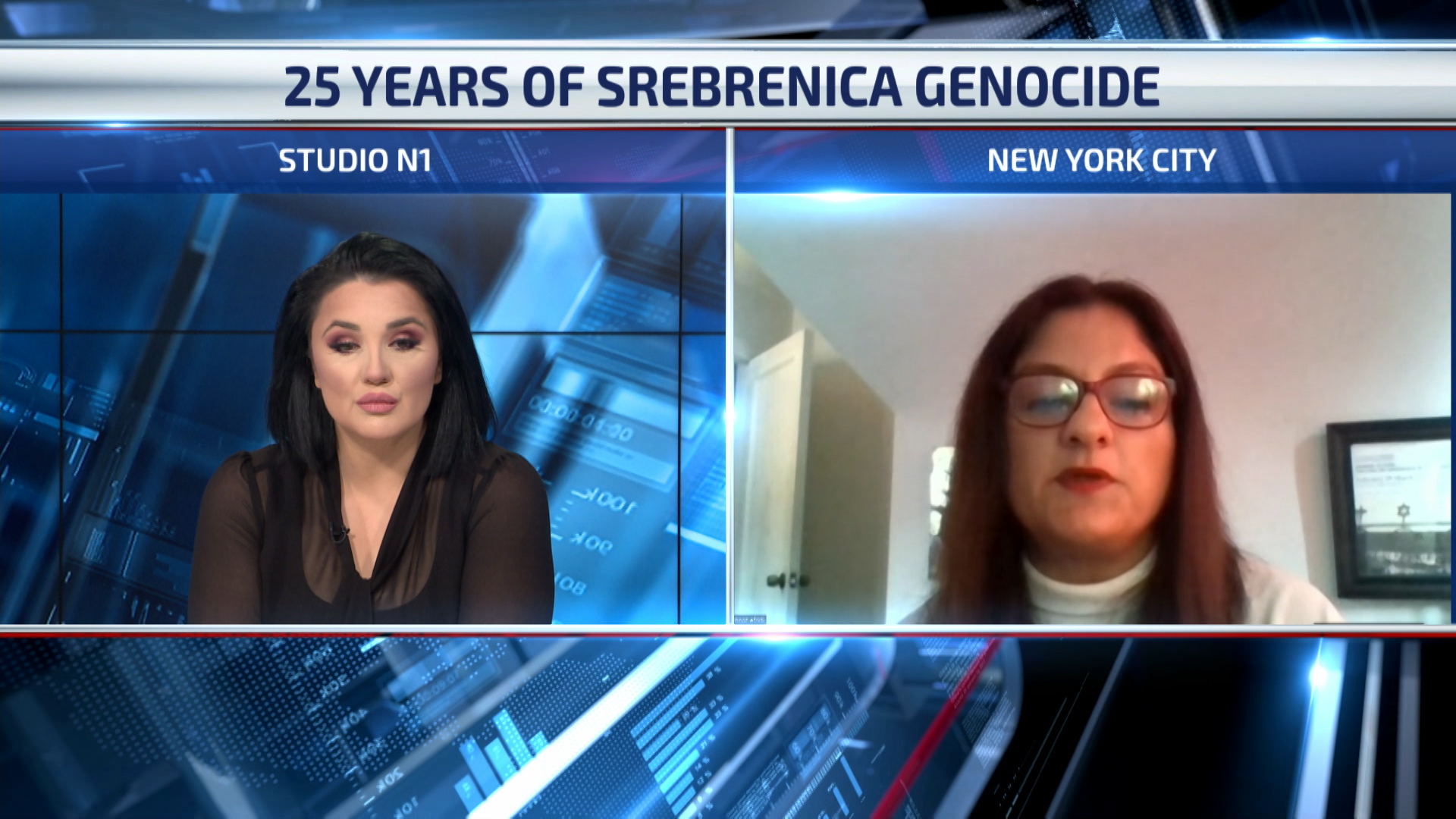
Mehnaz M. Afridi is the director of the Manhattan College Holocaust, Genocide, and Interfaith Education Center. The goal of the centre is to help eradicate human suffering, prejudice, and racism through education. Afridi is also an Associate Professor of Religious Studies at Manhattan College where she teaches Islam and the Holocaust. Her research primarily focuses on Islam and contemporary literature.
Dr Afridi spoke to N1's Ika Ferrer Gotic on the 25th Commemoration of the victims of Genocide in Srebrenica.
The world is commemorating the 25th anniversary of the Bosnian Genocide during Srebrenica Memorial Week. The importance of doing is to build stronger, more cohesive communities whilst ensuring that the lessons from Srebrenica are never forgotten.
"We study Genocides in the modern period that relate to issues of ethnicity, races and religion. Students analyze how religion can play a role to motivate or protect the rise of genocide. Students are introduced to modern examples of genocide such as; Armenia, Bosnia and Darfur. They are asked to create awareness on campus in memory of the victims of genocide through research and panels on campus," said Afridi.
The Bosnian genocide denial is an act of denying or asserting that the systemic Bosnian genocide against the Bosniak Muslim population of Bosnia and Herzegovina, as planned and perpetrated in line with official and academic narratives defined and expressed by part of the Serb intelligentsia and academia, political and military establishment, did not occur, or at least it did not occur in the manner or to the extent that has been established by the International Criminal Tribunal for the former Yugoslavia (ICTY) and the International Court of Justice (ICJ) through its proceedings and judgments, and described by subsequent comprehensive scholarship.
"If you deny someone else's suffering, you're not human" - concluded Dr. Afridi in her exclusive interview for N1.
The events in Srebrenica in 1995 included the killing of more than 8,000 Bosniak (Bosnian Muslim) men and boys, as well as the mass expulsion of another 25,000–30,000 Bosniak civilians, in and around the town of Srebrenica in Bosnia and Herzegovina, committed by units of the Army of the Republika Srpska (VRS) under the command of General Ratko Mladic.
The ethnic cleansing campaign took place throughout the areas controlled by the Bosnian Serbs and targeted Bosniaks and Bosnian Croats.
This campaign included extermination, unlawful confinement, mass rape, sexual assault, torture, plunder and destruction of private and public property, and inhumane treatment of civilians; the targeting of political leaders, intellectuals, and professionals; the unlawful deportation and transfer of civilians; it also included the unlawful shelling of civilians, the unlawful appropriation and plunder of real and personal property, the destruction of homes and businesses, and systemic destruction of places of worship.
Kakvo je tvoje mišljenje o ovome?
Učestvuj u diskusiji ili pročitaj komentare





 Srbija
Srbija
 Hrvatska
Hrvatska
 Slovenija
Slovenija







